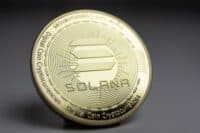
The stock market is an ever-evolving giant that over the years has taken on many new life forms. Investors in the 1980s had no idea what a dot-com boom was going to be. Similarly, those investing in the 1990s and early 2000s had little idea of cloud computing or the Internet of Things. Now, already two decades into the new century, one of the biggest new areas for investors are stocks that are in the so-called ESG basket. While this is not a new technology or health care breakthrough, conscientious investors will look for companies that have the traits that better represent their personal aspirations.
Environmental, social and governance, or ESG, refers to the three central factors in measuring the sustainability and societal impact of an investment in a company or business. These criteria help to better determine the future financial performance of companies (return and risk).
The analysts at Goldman Sachs noted this when discussing the large investor interest in the category:
The dichotomy of ongoing inflows into global ESG funds (+$135 billion year-to-date according to Morningstar) vs. non-ESG funds (-$422 billion) remains stark. Net inflows have been similarly strong across Integration, Exclusion & Thematic strategies as well as ESG-linked ETFs, each with trailing 12 month growth in excess of 100%. ETFs have made up a larger share of ESG net inflows in 2020 year -to-date (30% vs. 28% in 2019), though actively-managed ESG inflows have re-accelerated in recent quarters.
They noted this when discussing overlooked companies with big potential:
Understanding that the market primarily consumes ESG data with clear biases toward product impact and high disclosure, we screen our SUSTAIN ESG scoring framework for names that rank well across a variety of factors and are under owned in our ESG fund universe.
The analysts found four companies that score well in the firm’s ESG grading framework but are underowned by ESG fund managers, and all are rated Buy. It is important to remember that no single analyst report should be used as a sole basis for any buying or selling decision.
Caterpillar
This large-cap leader was hit by trade worries in 2019 but has rallied nicely this year off the March lows. Caterpillar Inc. (NYSE: CAT) is the world’s leading manufacturer of construction and mining equipment, diesel and natural gas engines, industrial gas turbines and diesel-electric locomotives. It is also one of the most valuable brands in the world.
The company principally operates through three primary segments (Construction Industries, Resource Industries and Energy & Transportation). It also provides financing and related services through its Financial Products segment.
The company posted better than expected third-quarter results Tuesday morning, though sales did decline year over year, and the profit margin was down as well.
Shareholders receive a solid 2.52% dividend. The Goldman Sachs price target for the shares is $162, and the Wall Street consensus target is $150.18. Caterpillar stock closed Monday’s trading above both levels at $163.20.
Etsy
This company posted outstanding second-quarter results. Etsy Inc. (NASDAQ: ETSY) operates two-sided online marketplaces that connect millions of passionate and creative buyers and sellers around the world. The company’s primary marketplace, Etsy.com, is the global destination for unique and creative goods. Buyers come to Etsy to be inspired and delighted by items that are crafted and curated by creative entrepreneurs.
For sellers, Etsy offers a range of tools and services that address key business needs. In addition, the company owns Reverb, a leading global online marketplace dedicated to buying and selling new, used, and vintage musical instruments.
Goldman Sachs has a price target of $172, which is well above the consensus target price of $153.12. Etsy stock closed at $139.73 per share on Monday.
Kimco Realty
This top real estate investment trust (REIT) makes sense for investors who are more conservative. Kimco Realty Corp. (NYSE: KIM) has specialized in shopping center acquisitions, development and management. It owns and operates the nation’s largest portfolio of neighborhood and community shopping centers with interests in the company-owned interests in 430 U.S. shopping centers comprising 75 million square feet of leasable space, primarily concentrated in the top major metropolitan markets.
Kimco shareholders receive a solid 3.60% distribution. The $16 Goldman Sachs price target that compares with the $13.47 consensus target, as well as the $11.11 per share final trade of Kimco Realty stock on Monday.
Shopify
After being on fire for most of 2020, the shares were hit hard during the September tech sell-off, but they have rallied back smartly. Shopify Inc. (NYSE: SHOP) is a cloud-based provider of e-commerce solutions to small businesses and entrepreneurs. Its core Subscription Solutions includes front-end website features such as design (across desktop, mobile and tablet) and a fully integrated back end support system, including order management, point-of-sales and a multichannel experience with over 70 payment gateways.
Forecasted earnings estimates for Shopify’s third quarter that ended September 30, 2020, and the full-year expectations for 2020 and 2021 have been scaled up. The third-quarter earnings estimate has been raised to $0.51 per share from $0.48 The 2020 estimate has been raised to $2.49 per share from $2.44, and the 2021 estimate has increased from $2.30 per share to $2.38.
Goldman Sachs has set a stunning $1,318 price target. The posted consensus target is $1,113.13, and Shopify stock closed most recently at $1,038.05 a share.
Again, the ESG group represents a new attitude among investors about how companies should be run, and while perhaps not as significant as artificial intelligence or self-driving electric vehicles, it speaks volumes about the evolution of investors and probably will dominate discussion and investment choices in the years to come.
Is Your Money Earning the Best Possible Rate? (Sponsor)
Let’s face it: If your money is just sitting in a checking account, you’re losing value every single day. With most checking accounts offering little to no interest, the cash you worked so hard to save is gradually being eroded by inflation.
However, by moving that money into a high-yield savings account, you can put your cash to work, growing steadily with little to no effort on your part. In just a few clicks, you can set up a high-yield savings account and start earning interest immediately.
There are plenty of reputable banks and online platforms that offer competitive rates, and many of them come with zero fees and no minimum balance requirements. Click here to see if you’re earning the best possible rate on your money!
Thank you for reading! Have some feedback for us?
Contact the 24/7 Wall St. editorial team.
 24/7 Wall St.
24/7 Wall St.


